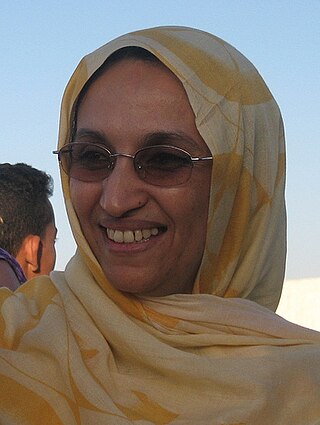
Aminatou Ali Ahmed Haidar, sometimes known as Aminetou, Aminatu or Aminetu, is a Sahrawi human rights activist and an advocate of the independence of Western Sahara. She is often called the "Sahrawi Gandhi" or "Sahrawi Pasionaria" for her nonviolent protests. She is the president of the Collective of Sahrawi Human Rights Defenders (CODESA). She was imprisoned from 1987 to 1991 and from 2005 to 2006 on charges related to her independence advocacy. In 2009, she attracted international attention when she staged a hunger strike in Lanzarote Airport after being denied re-entry into Moroccan Western Sahara. Haidar has won several international human rights awards for her work, including the 2008 Robert F. Kennedy Human Rights Award, 2009 Civil Courage Prize and 2019 Right Livelihood Award.
The Association Tchadienne pour la Promotion et la Défense des Droits de l'Homme or Chadian Association for the Promotion and Defence of Human Rights is a human rights organization operating in Chad. According to group co-founder Delphine Djiraibe, following the rebellion by Idriss Déby that overthrew the dictatorship of Hissène Habré in 1990, she and several colleagues returned to Chad from abroad and saw widespread starvation and poverty among the people. The event motivated them to found the ATDPH to prevent similar suffering in the future.
Gloria Richardson Dandridge was an American civil rights activist best known as the leader of the Cambridge movement, a civil rights action in the early 1960s in Cambridge, Maryland, on the Eastern Shore. Recognized as a major figure in the Civil Rights Movement, she was one of the signatories to "The Treaty of Cambridge", signed in July 1963 with Attorney General Robert F. Kennedy, and state and local officials. It was an effort at reconciliation and commitment to change after a riot the month before.
Chakufwa Chihana was a Malawian human rights activist, pro-democracy advocate, trade unionist and later, politician. He held the post of Second Vice President in Malawi, under President Bakili Muluzi. He is often called the 'father of Malawian democracy'. He served as leader of Malawi's first underground political movement, which urged President Hastings Kamuzu Banda, who had ruled for three decades, to call for a referendum on political pluralism. He was awarded the Robert F. Kennedy Human Rights Award in 1992.

The Villatina massacre was a massacre of eight children and one young adult by the Colombian police that took place on 15 November 1992 in the city of Medellín. Colombian policemen had been killed by youth gangs before the massacre took place, and the Colombian police were attempting to exact revenge against the gangs by carrying out the massacre. None of the victims of the massacre were gang members; they were all members of a Protestant Christian organization.
Colombia is a sovereign state situated in South America. It has been a member of the United Nations since 5 November 1945, and is party to a variety of international agreements concerning human rights. It also has a series of domestic laws concerning the protection of human rights. However, Colombia's human rights record often contradicts directly with the laws and agreements to which it is bound; Colombia was referred to as the country with the "worst human rights record in the western hemisphere," by HRW in 2007. The same was said of Guatemala in 1998, as well as Cuba in 2012 and Venezuela today. In the UK Foreign Office annual human rights report for 2010, Colombia features as one of 20 "Countries of Concern".

Mario Joseph is a Haitian human rights lawyer. Since 1996, he has led the Bureau des Avocats Internationaux (BAI) in Port-au-Prince, which represents political prisoners, impoverished communities, and victims of political violence. In 2006, The New York Times called Joseph "Haiti's most prominent human rights lawyer".
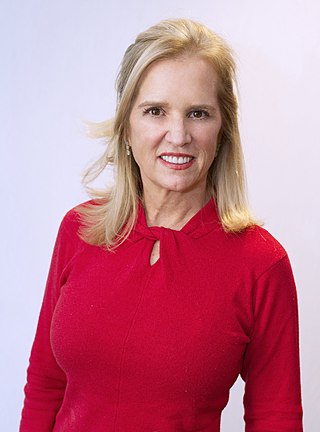
Mary Kerry Kennedy is an American lawyer, author and human rights activist. She is the seventh child of Robert F. Kennedy and Ethel Skakel Kennedy. During her 15-year marriage to future New York Governor Andrew Cuomo, from 1990 to 2005, she was known as Kerry Kennedy-Cuomo. She is the president of Robert F. Kennedy Human Rights, a non-profit human rights advocacy organization.
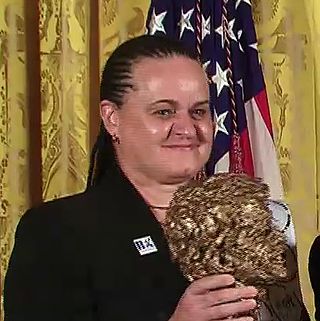
Jenni Williams is a Zimbabwean human rights activist and a founder of Women of Zimbabwe Arise (WOZA). A prominent critic of President Robert Mugabe's government, she was described by The Guardian in 2009 as "one of the most troublesome thorns in Mugabe's side".

Abel Barrera Hernández is a Mexican anthropologist and human rights activist. In 1994, he founded the Center for Human Rights of the Mountain of Tlachinollan in Guerrero, for which he was awarded by Amnesty International and given the 2010 Robert F. Kennedy Human Rights Award.
Mohammed Ahmed Abdallah is a Sudanese physician and human rights activist.
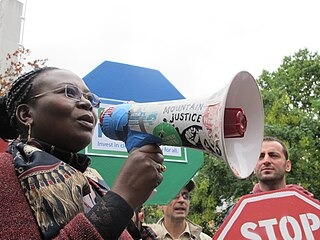
Delphine Djiraibe is a Chadian attorney and co-founder of the Chadian Association for the Promotion and Defense of Human Rights.In 2006 she also founded the Public Interest Law Center (PILC). BBC News has described her as "one of Chad's most prominent human rights lawyers".
Loune Viaud is Executive Director of Zanmi Lasante, Partners in Health’s sister organization in Haiti. She won the 2002 Robert F. Kennedy Human Rights Award for her work with the group to provide health care in Haiti, and in 2003 was named one of Ms. magazine's "Women of the Year".

In Jae-keun is a South Korean politician and democracy activist. In 1985, her husband Kim Geun-tae was arrested and tortured by the government of Chun Doo-hwan for his pro-democracy activism. In 1987, In was awarded the Robert F. Kennedy Human Rights Award along with her husband for her role in publicly exposing his detention and torture. After Kim's death, she was elected as member of national assembly for Dobong A, Seoul in 2012. Dobong A was Kim's constituency from 1996 to 2008.

Gloria Flórez Schneider is a Colombian activist on behalf of internally displaced persons. She is the head of MINGA, an "Association for Alternative Social Policy". In 1998, she won the Robert F. Kennedy Human Rights Award, along with Berenice Celeyta, Jaime Prieto, and Mario Calixto.
Jaime Prieto Mendez is a Colombian human rights activist. The Robert F. Kennedy Center for Justice and Human Rights describes him as "internationally regarded as a founder of the modern Colombian human rights movement", and in 1998 awarded him its Robert F. Kennedy Human Rights Award along with fellow Colombian activists Berenice Celeyta, Gloria Florez, and Mario Calixto.
Mario Calixto is a Colombian human rights activist.
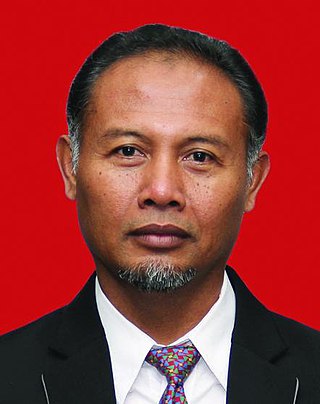
Bambang Widjojanto is an Indonesian human rights activist. He is the co-founder of the Indonesian Legal Aid Foundation and a "leading advocate for the rights of the indigenous peoples of West Papua". According to The New York Times, his work for indigenous peoples made him "the target of repeated threats and detentions by the Indonesian government".
Librada Paz is a Mexican-American activist for the rights of farmworkers.

Kathryn A. Sikkink is an author, human rights academic, and scholar of international relations working primarily through the theoretical strain of constructivism. She is currently a professor at Harvard Kennedy School.











